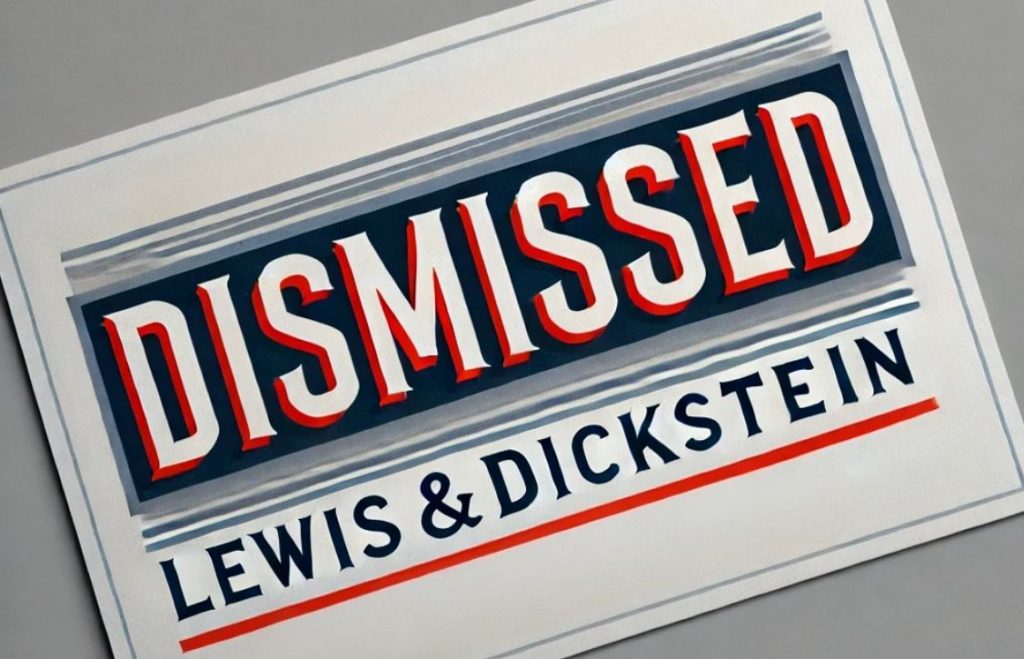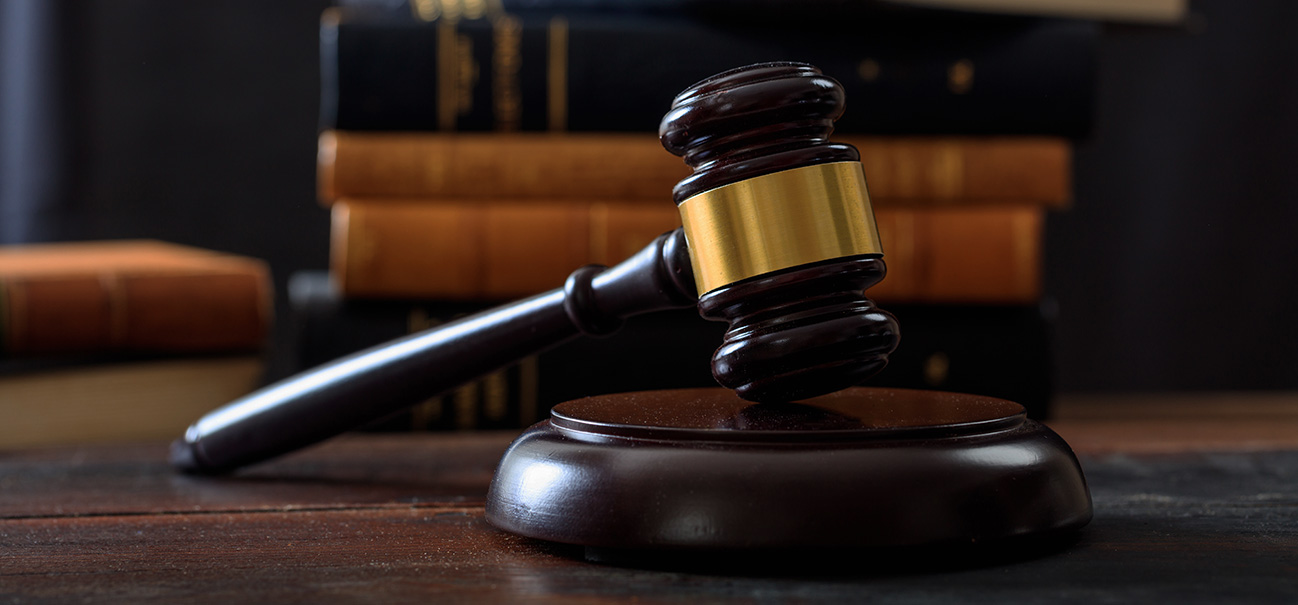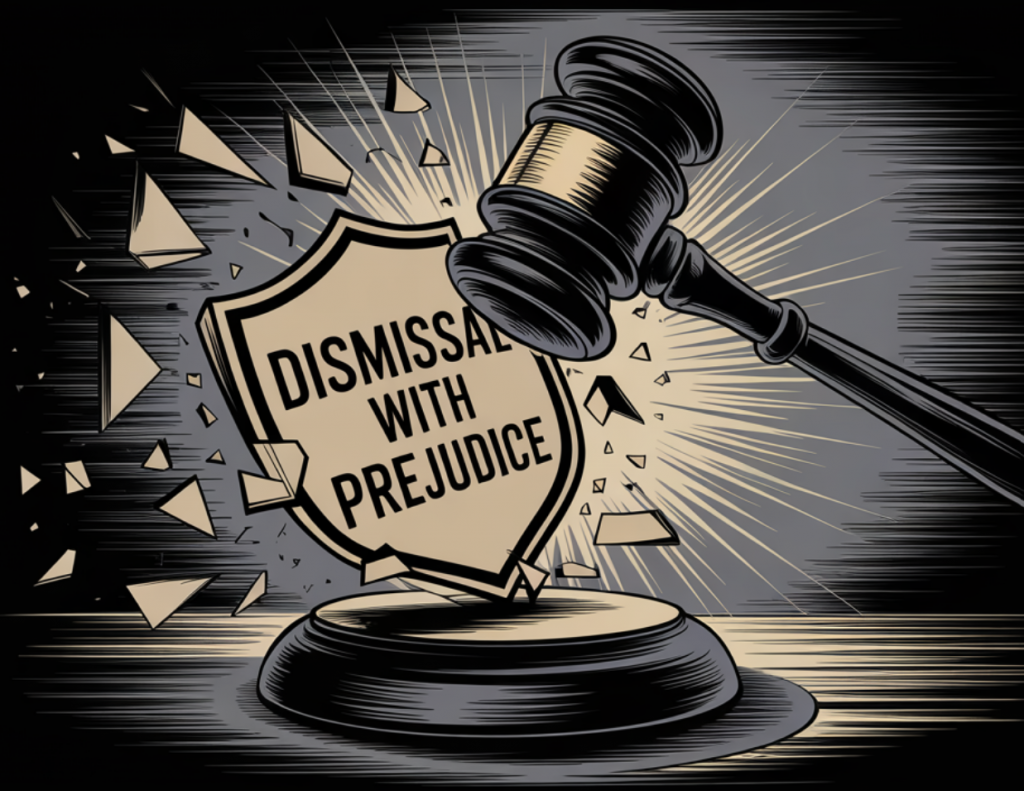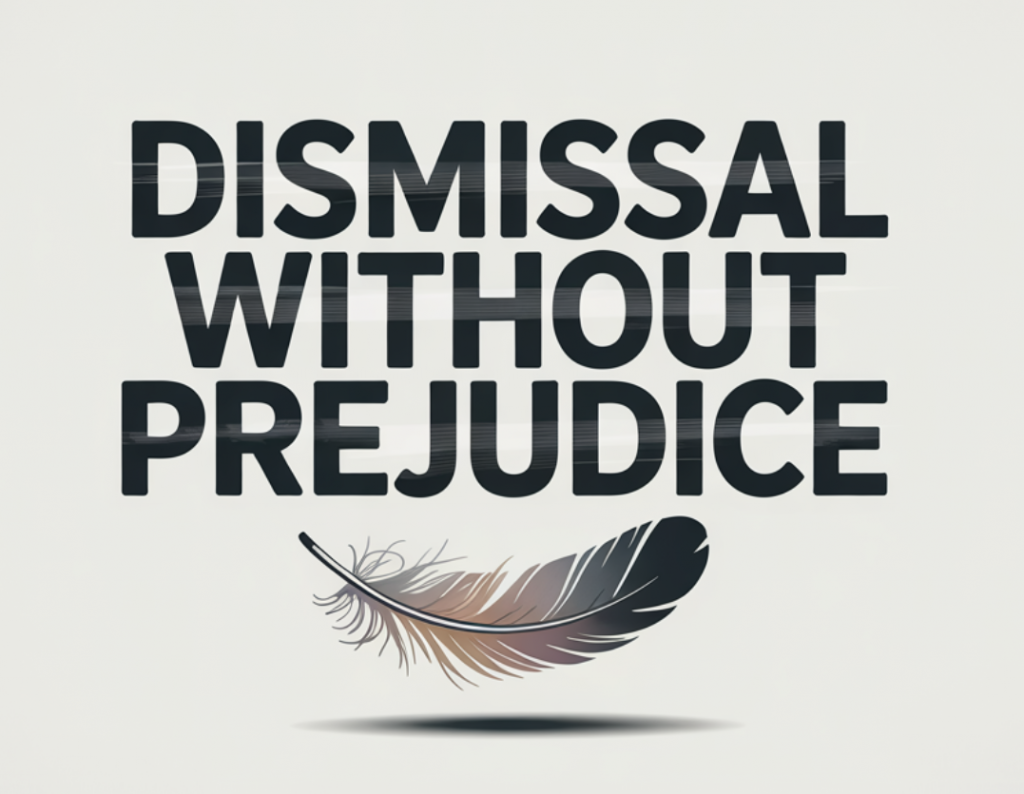What is a dismissal without prejudice?
A dismissal without prejudice is not permanent. Only a dismissal with prejudice guarantees that the government cannot refile charges.

Dismissal of Criminal Charges with Prejudice
Depending on the county, a felony or misdemeanor criminal proceeding that ends prematurely due to error, mistake, or misconduct may be dismissed with or without prejudice. If the case ends without prejudice, the defendant may be recharged and retried. If the case ends with a dismissal with prejudice, it is over, and the prosecutor cannot recharge them.
Generally, a case is dismissed with prejudice if jeopardy is attached (the government can never refile it). When a trial begins, jeopardy attaches. In other words, attaches when the Court impanels a jury. In a bench trial, it attaches when the Court swears in the first witness.
Dismissal After a Trial
If a criminal case goes to trial and the defendant is acquitted, jeopardy is attached to the case and cannot be retried (this is known as double jeopardy). If the defendant was convicted and the appellate court overturns the conviction, jeopardy may or may not attach depending on the legal reason for the reversal.
The conviction for a lesser offense is an acquittal of any higher-level offense (for example, a conviction for second-degree murder is an acquittal of first-degree murder) if the case goes to trial, where they are convicted of a lesser offense. If the conviction is later overturned, the maximum the defendant can be retried for is the crime to which they were convicted; any higher charge is acquitted and thus is with prejudice.
A dismissal is generally without prejudice if the Court dismisses it before trial.

Dismissal of Criminal Charges without Prejudice
A dismissal without prejudice permits the re-indictment or retrial of a defendant on the same charge. Only nonconstitutional grounds that do not adversely affect the defendant’s rights, such as the crowding of court calendars, might be sufficient to warrant the dismissal of a criminal action without prejudice. When an aggressive Michigan Criminal Defense Attorney moves to dismiss a criminal charge, they will generally make a Motion to Dismiss with Prejudice.
Examples of Dismissals with and Without Prejudice
Here are two examples, each of criminal dismissals with and without prejudice:
Dismissed With Prejudice:
Lack of Evidence After Key Witness Recants – A domestic violence charge is dismissed with prejudice after the prosecution’s main witness admits to fabricating the allegation. The judge rules that retrying the case would violate due process, so the charge is permanently dismissed.
Police Misconduct Violates Defendant’s Rights – Drug trafficking charges are dismissed with prejudice when it’s revealed that officers conducted an illegal search without a warrant or consent. Because the police obtained the evidence unlawfully, and it is inadmissible in court, the case is barred from being refiled.
Dismissed Without Prejudice:
Prosecution Needs More Time to Gather Evidence – A retail fraud case is dismissed without prejudice after the prosecutor admits they need additional time to obtain surveillance footage. If the evidence becomes available, the prosecutor may refile the case.
Witness Fails to Appear at First Hearing – An assault charge is dismissed without prejudice when the victim fails to appear at the preliminary examination. The prosecution may refile if the witness later cooperates or a subpoena compels their testimony.

How do criminal defense lawyers get charges dismissed?
Although there is no definitive answer explaining how criminal defense lawyers get a dismissal with or without prejudice, there are some common approaches, including the following:
- Challenging the Evidence
- Lack of Probable Cause: Lawyers often challenge the initial stop, search, or arrest by arguing that law enforcement lacked probable cause.
- Illegal Search and Seizure: If evidence was obtained through an unlawful search or seizure, a motion to suppress can be filed. This can potentially lead to dismissal if the prosecution’s case relies heavily on that evidence.
- Chain of Custody Issues: Questioning the handling and documentation of evidence to show that it may have been tampered with or improperly handled.
- Procedural and Constitutional Violations
- Miranda Rights Violations: If a defendant’s Miranda rights were not read during the arrest, self-incriminating statements may be inadmissible.
- Right to a Speedy Trial: Delays in prosecution that violate the defendant’s right to a speedy trial can lead to dismissal.
- Improper Filing or Notification: Mistakes in how the prosecution filed charges or failure to notify the defendant properly, can be grounds for dismissal.
- Lack of Sufficient Evidence
- Insufficient Evidence: The defense can argue that the prosecution does not have enough evidence to prove the defendant’s guilt beyond a reasonable doubt.
- Motion for a Directed Verdict: During a trial, the defense can request the judge to dismiss the case if the prosecution fails to present sufficient evidence.
- Negotiating with Prosecutors
- Pre-Trial Diversion Programs: Negotiating entry into diversion programs, which, upon successful completion, can lead to charges being dismissed.
- Plea Bargains: While not technically a dismissal, negotiating lesser charges can sometimes result in the prosecution agreeing to dismiss the original charges.
- Witness and Victim Issues
- Uncooperative or Unavailable Witnesses: If key witnesses or the alleged victim refuse to cooperate or cannot be located, the prosecution may have to drop the charges.
- Discrediting Witnesses: Demonstrating that witnesses are unreliable or have ulterior motives can significantly weaken the prosecution’s case.
Influential criminal defense lawyers utilize a variety of strategies to get charges dismissed. From challenging the validity of the evidence to negotiating with prosecutors and highlighting procedural errors, their expertise and thorough approach can significantly impact the outcome of a case. If you are facing charges, it’s crucial to have a skilled attorney, such as the lawyers with LEWIS & DICKSTEIN, P.L.L.C., who know how to fight for the dismissal of your case with or without prejudice.

Michigan Criminal Defense Attorney for Seeking a Dismissal of Charges
Criminal cases have specialized rules, laws, statutes, and regulations. If you are charged with a crime or under investigation for a crime, it is essential that you have a criminal law specialist represent you and protect you against the government. A motion to dismiss the charges against you may be appropriate in your state or federal criminal case. A top criminal lawyer would be able to provide a free consultation for you and discuss the potential of a motion for dismissal with or without prejudice in your case. At the law firm of LEWIS & DICKSTEIN, P.L.L.C., our attorneys have decades of legal experience in criminal defense. Call us or click this link for a free consultation. We will find a way to help you!
Call us today at (248) 263-6800 for a free consultation or complete an online Request for Assistance Form. We will contact you promptly and find a way to help you.














